All the billionaires who are sounding off on income inequality
Income inequality has been a central issue in the past few election cycles as the economy has failed to boost incomes for middle-class families.
But some of the loudest voices decrying income inequality might surprise you: America’s billionaires.
Ray Dalio, Warren Buffett, Jamie Dimon, Steve Schwarzman, Howard Shultz and Bill Gates have been sounding the alarm about the importance of addressing the wealth gap and the dangers it presents to the U.S.
The unemployment rate fell to 3.6% in April, its lowest level in 50 years; it’s the latest signal that the U.S. economy is strong. However, if you take a closer look at wages, average hourly earnings only grew by 3.2% over the year.
The wealthiest 1% of American households own a larger share of the nation’s wealth – 39.6% – than at any time over the past 50 years, according to the National Bureau of Economic Research.
The 26 richest people in the world own as much assets as the poorest 3.8 billion, according to Oxfam.
Dalio, Buffett, Dimon, Gates, Schwarzman, and Schultz see income inequality as a fundamental problem and they want the U.S. government to step up and help fix it.
Ray Dalio
Net worth: $18.4 billion (Forbes)

The founder and owner of Bridgewater Associates, the world’s largest hedge fund with $137 billion in assets under management, Dalio views the current income gap as a national emergency and believes it must be addressed at the very top.
“If I was the president of the United States,” Dalio said on CBS’ “60 Minutes” in April, “I would recognize that it’s a national emergency.” He says the American dream is lost because opportunity isn’t available to everyone.
“If you look at history, if you have a group of people who have very different economic conditions and you have an economic downturn, you have conflict,” Dalio said on “60 Minutes.” “In the 30’s for example, you had four major countries that were democracies that chose not to be democracies because they wanted leadership to bring order to the conflict.” Dalio adds that the income gap is “unfair...unproductive, and...it threatens to split us.”
Warren Buffett
Net worth: $89.9 billion (Forbes)
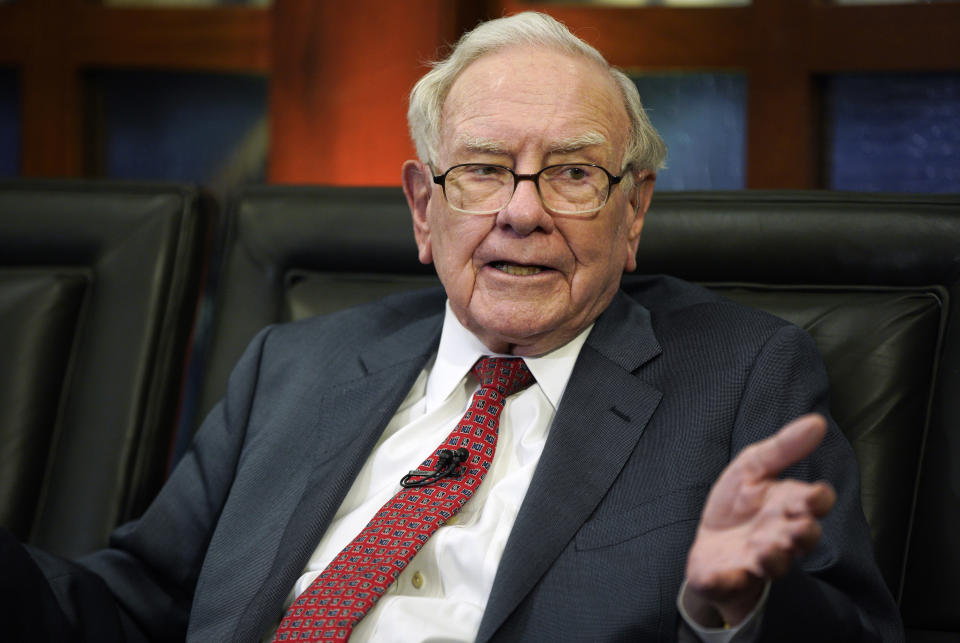
As the third-richest man in the world, Warren Buffett recognizes that Americans at the low end of the income distribution have contributed to his success. In an interview with Yahoo Finance’s editor-in-chief Andy Serwer, the CEO of Berkshire Hathaway said that these are “people that don’t fit well into the market system but that are perfectly decent citizens and that have made a good bit of the success somebody like I’ve had with Berkshire... possible. It wouldn’t have happened without the America we have.”
Buffett has said that the earned income tax credit is the best means of addressing income inequality in America. (He wrote an op-ed in the Wall Street Journal in 2015 calling for an expansion of the EITC, saying “In recent decades, our country’s rising tide has not lifted the boats of the poor.”)
“You want them to feel part of the system,” Buffett said, “as more and more of these golden eggs are laid, you want them to get a little more of their share.”
Jamie Dimon
Net worth: $1.4 billion (Forbes)
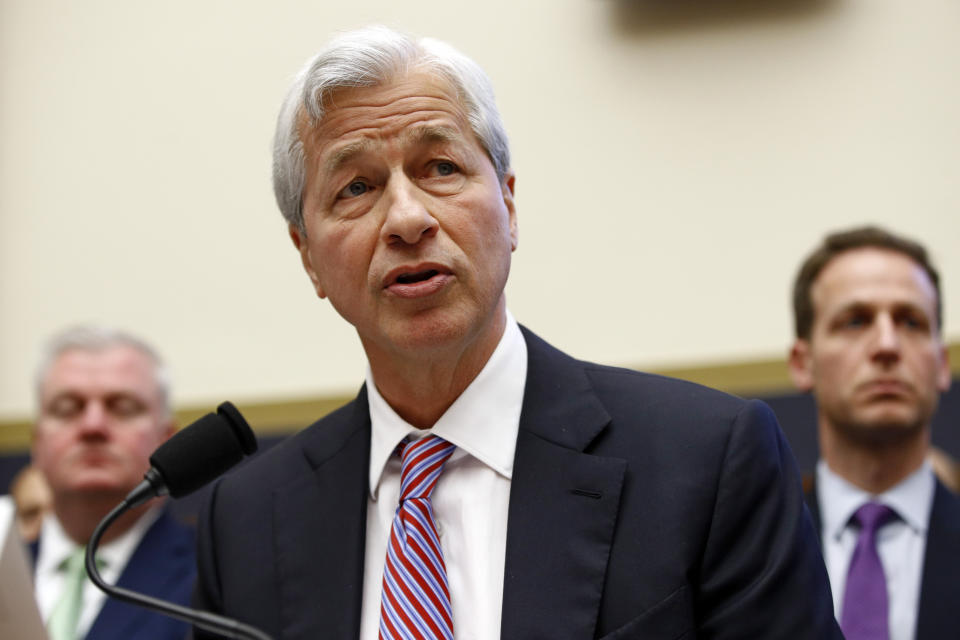
JPMorgan CEO Jamie Dimon has said that the U.S. economy has split the country between those who are profiting off of major corporations’ successes and those who have been left behind. “I don’t want to be a tone-deaf CEO,” Dimon said in March.
In his 2018 annual letter to shareholders, Dimon wrote that income inequality has gotten worse, as middle-class incomes have remained stagnant for years. He said 40% of workers earn less than $15 an hour with about 5% of Americans who work full-time earning the minimum wage or less, which he pointed out is not a living wage.
Dimon warned, “If we do not fix these problems, America’s moral, economic and military dominance may cease to exist.” While capitalism clearly has its flaws, he highlighted socialism’s ills and how America would be much worse off with that kind of a system. “When governments control companies, economic assets (companies, lenders and so on) over time are used to further political interests – leading to inefficient companies and markets, enormous favoritism and corruption.”
Steve Schwarzman
Net worth: $14.7 billion (Forbes)
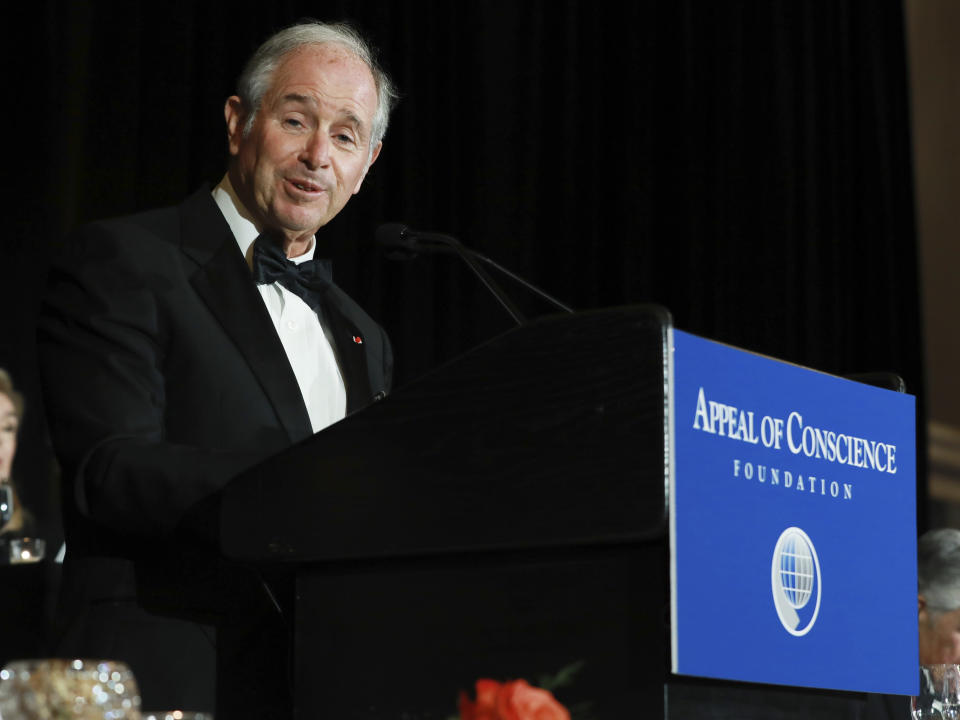
The CEO and chairman of Blackstone Group, a private equity firm, has a “Marshall Plan” for helping the middle class and addressing the wealth gap. The three main components of his plan are raising the minimum wage, government investment in technical programs in schools, and tax breaks for teachers.
“I look at this as a systemic problem,” Schwarzman said on CNBC’s “Squawk Box” in April. “This is like half of our society is severely disadvantaged. We can’t allow that to continue, so that means you need policy solutions.”
Howard Schultz
Net worth: $3.8 billion (Forbes)
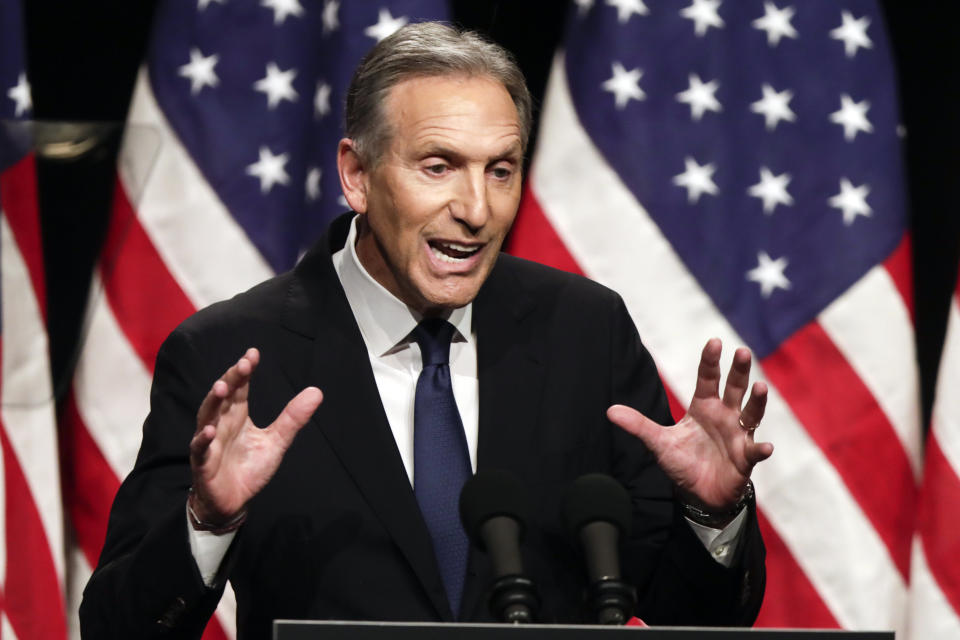
The former CEO and chairman of Starbucks is a possible presidential candidate – and says the wealth gap would be a top priority for him if he were elected.
“I still have the scars, vulnerability, the shame, the insecurity of growing up in a family where my parents couldn’t afford the $96-a-month rent for the apartment in the projects,” he said. “That just never left me – like all of us, my childhood experiences have defined me.”
Schultz thinks the wealthy should pay more taxes and the corporate tax rate should be raised.
Bill Gates
Net worth: $101.7 billion (Forbes)
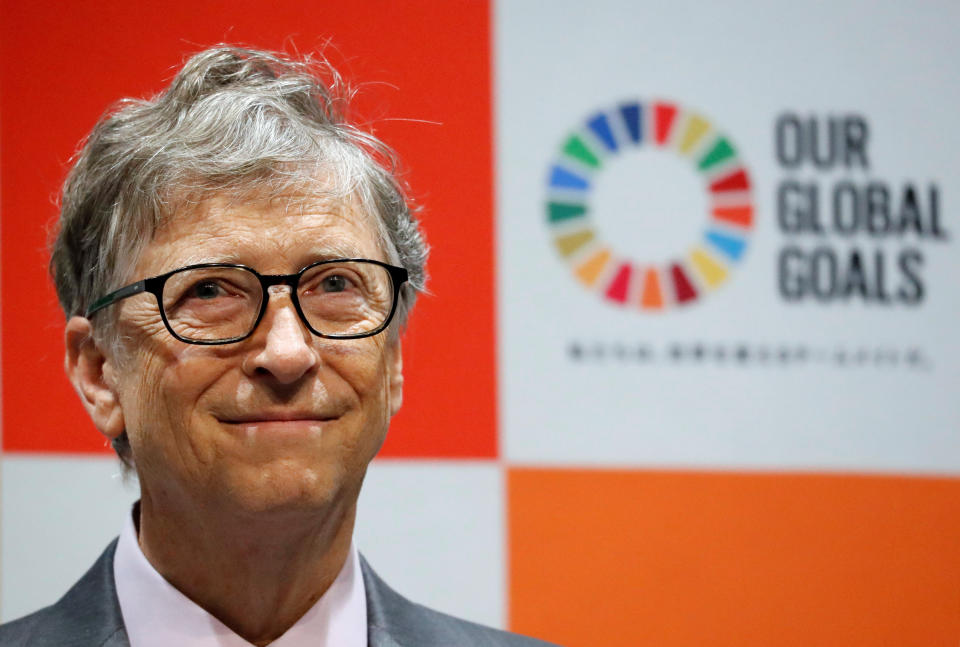
A vocal critic of income inequality, the Microsoft founder supports taxes on the rich, but says that proposals by freshman Congresswoman Alexandria Ocasio-Cortez misses the mark by focusing too much on high income brackets. Ocasio-Cortez has floated the idea of increasing the top marginal tax rate to 70% on income over $10 million.
“In terms of revenue collection, you wouldn’t want to just focus on the ordinary income rate,” Gates said recently, “because people who are wealthy have a rounding error of ordinary income.”
“They have income that just is the value of their stock, which if they don’t sell it, it doesn’t show up as income at all, or if it shows up, it shows up over in the capital gains side,” he said recently – meaning that top earners are only paying a 20% tax rate instead of the 39% marginal ordinary income rate.
Follow Sibile Marcellus on @SibileTV.
More from Sibile:
Housing costs are growing fastest for lower-income families
Netflix comic Minhaj jokes: Do as much controversial work as possible to succeed
$1.5 trillion student debt crisis: Many borrowers still don’t understand the costs
Single women are more confident about managing money than married women: UBS
